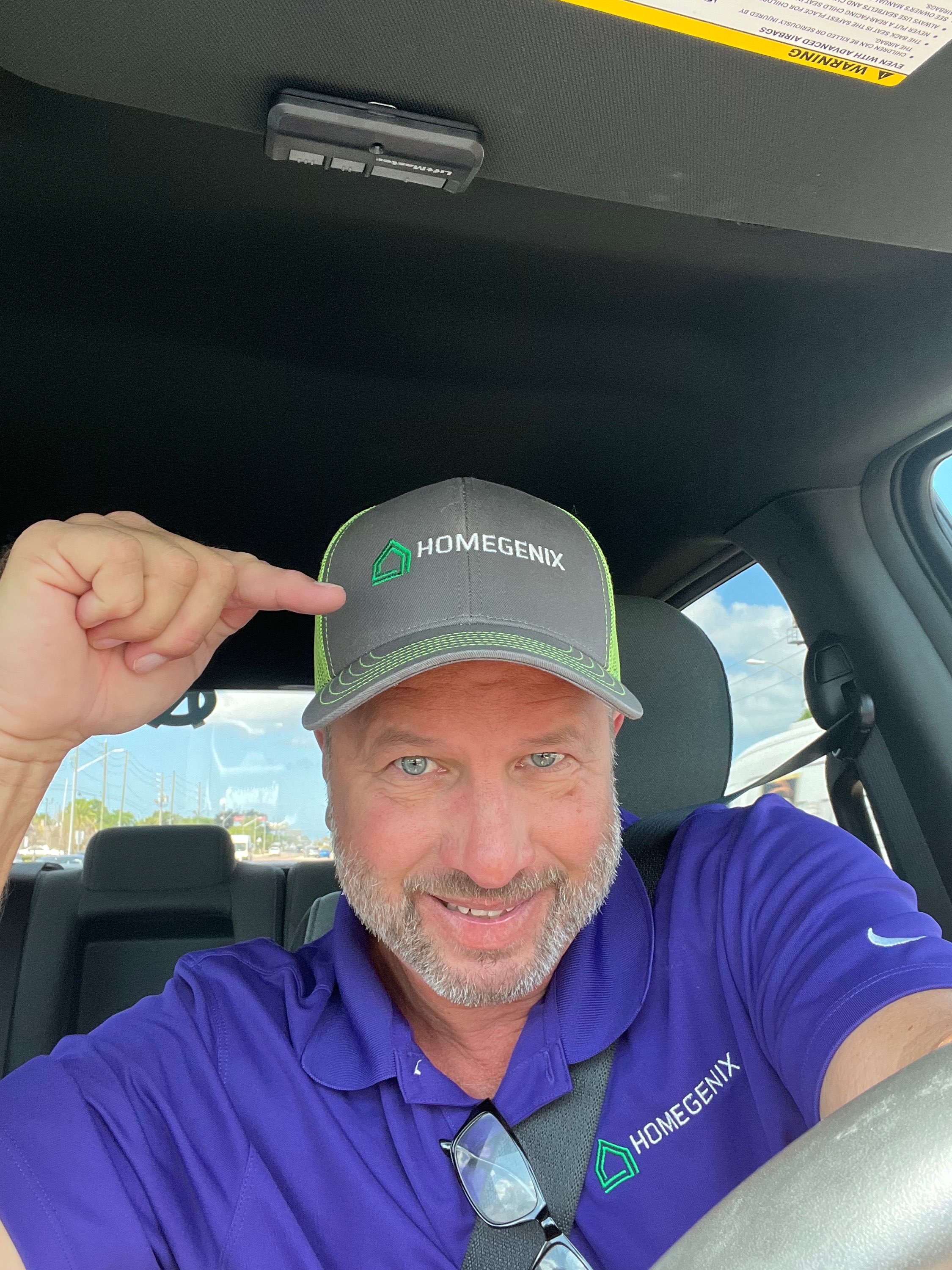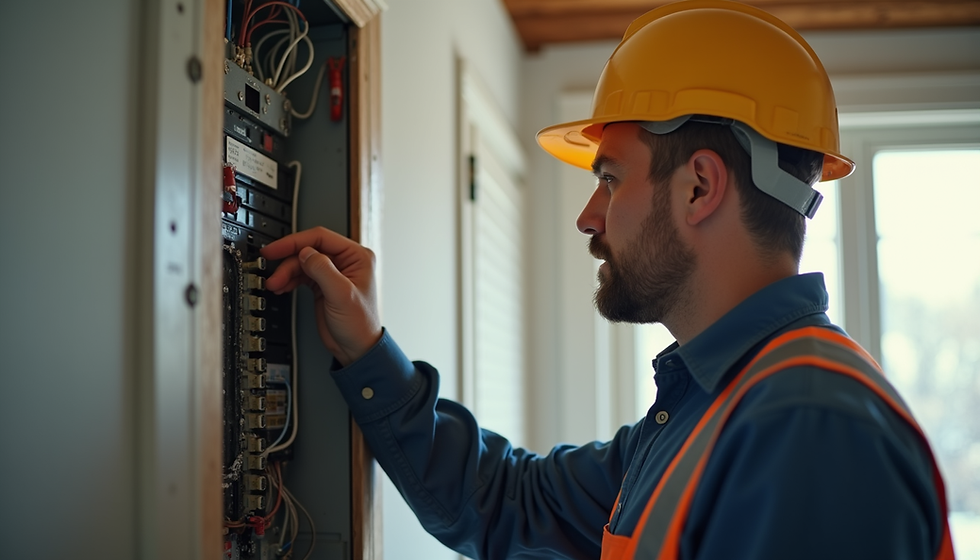Understanding the Importance of 4 Point Inspections in Florida
- David Lee
- Nov 28, 2025
- 4 min read
Updated: Dec 1, 2025
When buying or insuring an older home in Florida, a 4 point inspection often becomes a key requirement. This inspection focuses on four critical systems of a property: the roof, electrical, plumbing, and HVAC. Understanding why this inspection matters can save homeowners from unexpected expenses and insurance headaches. This article explains what a 4 point inspection involves, why it is essential in Florida, and how it can protect your investment.
What Is a 4 Point Inspection?
A 4 point inspection is a focused home inspection that evaluates four main components:
Roof: Condition, age, leaks, and materials used.
Electrical System: Wiring, panels, outlets, and overall safety.
Plumbing System: Pipes, fixtures, water heaters, and leaks.
HVAC System: Heating, ventilation, and air conditioning units.
Unlike a full home inspection, which covers all aspects of a property, the 4 point inspection zeroes in on these four areas because they often cause the most significant insurance claims and repairs in older homes.
Why Florida Homes Need 4 Point Inspections
Florida’s unique climate and building conditions make 4 point inspections especially important. Here are some reasons:
Weather Exposure: Florida faces hurricanes, heavy rains, and high humidity. These conditions can accelerate wear and tear on roofs and HVAC systems.
Older Housing Stock: Many Florida homes were built decades ago. Older electrical and plumbing systems may not meet current safety standards.
Insurance Requirements: Many insurance companies require a 4 point inspection before issuing or renewing policies on homes over 30 years old.
Risk Management: Insurers want to assess potential risks to avoid costly claims related to water damage, electrical fires, or HVAC failures.
What Inspectors Look for in Each Area
Roof
Inspectors check for:
Age of the roof (most insurers prefer roofs less than 15-20 years old)
Missing or damaged shingles
Signs of leaks or water damage inside the attic or ceilings
Condition of gutters and downspouts
A roof in poor condition can lead to water intrusion, mold, and structural damage.
Electrical System
The inspection focuses on:
Type of wiring (knob-and-tube or aluminum wiring can be problematic)
Condition of the electrical panel and breakers
Presence of outdated or unsafe outlets
Proper grounding and circuit protection
Faulty electrical systems increase the risk of fires and power outages.
Plumbing System
Inspectors assess:
Pipe materials (copper, PVC, galvanized steel)
Signs of leaks or corrosion
Water heater age and condition
Functionality of fixtures and drainage
Old or damaged plumbing can cause leaks, water damage, and mold growth.
HVAC System
The HVAC check includes:
Age and condition of heating and cooling units
Proper installation and maintenance
Signs of leaks or corrosion in ductwork
Efficiency and safety of the system
A failing HVAC system can lead to uncomfortable living conditions and costly repairs.
How a 4 Point Inspection Affects Insurance
Insurance companies use the 4 point inspection report to decide:
Whether to insure the home
What coverage limits to set
What premiums to charge
Whether to require repairs before issuing a policy
For example, if the roof is near the end of its life, an insurer may charge higher premiums or require a roof replacement. Similarly, outdated electrical wiring might lead to denial of coverage until updated.
When to Get a 4 Point Inspection
When purchasing an older home in Florida, especially over 30 years old
Before renewing homeowner’s insurance on an older property
When requested by your insurance company
If you suspect issues with the roof, electrical, plumbing, or HVAC systems
Getting the inspection early can help you budget for repairs and avoid surprises.
Choosing a Qualified Inspector
Not all home inspectors perform 4 point inspections. Look for:
Licensed and experienced inspectors familiar with Florida building codes
Inspectors who provide detailed reports with photos and recommendations
Companies that specialize in insurance inspections
Ask for references and check reviews to ensure reliability.
Common Issues Found in Florida 4 Point Inspections
Roofs with missing shingles or storm damage
Aluminum wiring or outdated fuse boxes
Galvanized steel pipes prone to corrosion
HVAC units older than 15 years with poor maintenance
Addressing these issues can improve safety and insurance eligibility.
Cost and Timeframe
A 4 point inspection typically costs between $150 and $400, depending on the property size and location. The inspection usually takes 1 to 2 hours. The report is often delivered within a few days.
Benefits Beyond Insurance
While insurance is a primary driver, 4 point inspections also help homeowners:
Identify maintenance needs early
Plan for upgrades and repairs
Increase property value
Ensure safety for occupants
Summary
A 4 point inspection is a focused evaluation of a home’s roof, electrical, plumbing, and HVAC systems. In Florida, this inspection is crucial due to the state’s climate, older homes, and insurance requirements. It helps identify risks that could lead to costly repairs or insurance denial. Homeowners should consider getting a 4 point inspection when buying or insuring older properties to protect their investment and ensure safety. Call Homegenix Home Inspections LLC for 4 point inspection cost!





Comments